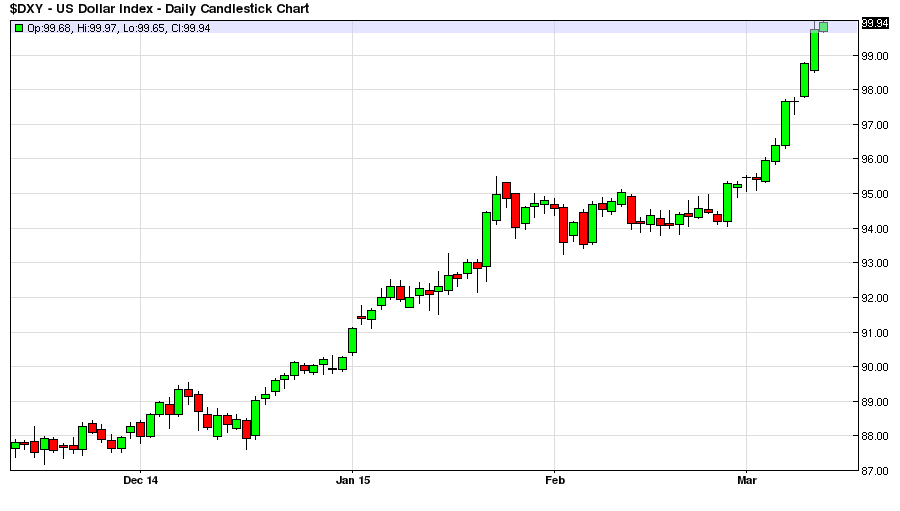China and Russia have taken the lead in establishing the Asian Infrastructure Investment Bank (AIIB), seen as a rival organisation to the World Bank and the Asian Development Bank, which are dominated by the United States with Europe and Japan.
These banks do business at the behest of the old Bretton Woods order. The AIIB will dance to China and Russia's tune instead.
The geopolitical importance was immediately evident from the US's negative reaction to the UK's announcement this week that it would join the AIIB. And very shortly afterwards France, Germany and Italy also defied the US and announced they might join. In the Pacific region, one of America's closest allies, Australia, says she is considering joining too along with New Zealand. The list of US allies seeking to join is growing. From a geopolitical point of view China and Russia have completely outmanoeuvred the US, splitting both NATO and America's Pacific alliances right down the middle.
This is much more important than political commentators generally realise. We must appreciate that anything China does is planned well in advance. Here is the relevant sequence of events:
• In 2002 China and Russia formally adopted the founding charter for the Shanghai Cooperation Organisation, an economic bloc that today contains about 35% of the world's population, which will become more than 50% when India, Pakistan, Iran, Afghanistan and Mongolia join, which is their stated intention. Russia has the resources and China the manufacturing power to develop the largest internal market ever seen.
• In October 2013 George Osborne was effectively summoned to Beijing because China wanted London to be the base to develop renminbi-denominated financial instruments. London has served China well, with the UK Government even issuing the first renminbi-denominated foreign (to China) government bond. The renminbi is now on the way to being a fully-fledged international currency.
• The establishment of an infrastructure bank, the AIIB, will ensure the lead funding is available for the rapid development of road, rail, electric and electronic communications throughout the SCO, ensuring equally rapid economic development of the whole of the Asian continent. It could amount to the equivalent of several trillion dollars over time.
The countries that are applying to join the AIIB realise that they have to be members to access what will eventually become the largest single market in the world. America is being frozen out, the consequence of her belligerence over Ukraine and the exercise of her hegemonic power through the dollar. America's allies in South East Asia are going with or will go with the new AIIB, and in Europe commercial interests are driving America's NATO partners away from her, turning the Ukraine from a common cause into a festering liability.
The more one thinks about it, the creation of the AIIB is a masterstroke of tactical genius. The outstanding issue now is China and Russia will need to come up with a credible plan to make their currencies a slam-dunk replacement for the dollar. We know that gold may be involved because the SCO members have been accumulating bullion; but before we get there China must manage a deliberate deflation of her credit bubble, which will be a delicate and dangerous task.
Unlike the welfare-driven economies in the west, China has sufficient political authority and internal control to survive a rapid deflation of bank credit. When this inevitably happens the economic consequences for the west will be very serious. Japan and the Eurozone are already facing economic dislocation, and despite over-optimistic employment numbers, the US economy is faltering as well. The last thing America and the dollar needs is a deflationary shock from China.
The silver lining for us all is a peace dividend: it is becoming less likely that America will persist with a call to arms, because support from her allies is melting away leaving her on her own.







